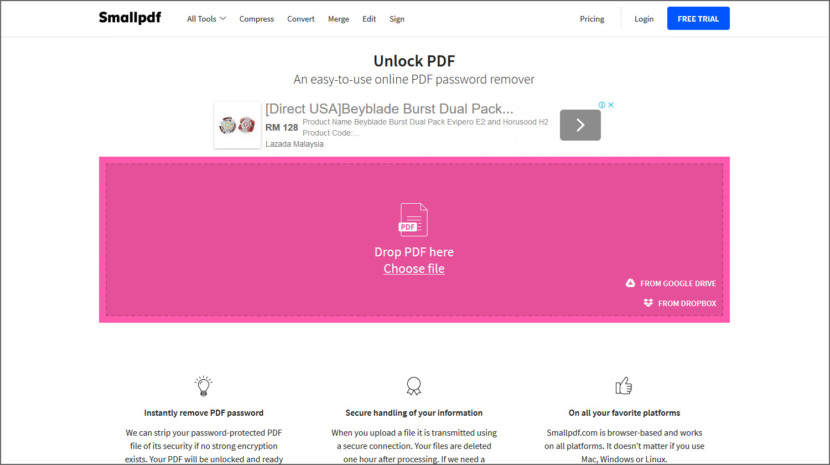A Password Kid refers to a term that is not commonly used or recognized in the technology industry. Assuming you mean “Password Kit,” I can provide an explanation from a professional point of view.
A Password Kit typically refers to a set of tools or resources designed to help individuals manage and secure their passwords. With the increasing number of online accounts and services that require passwords, it becomes impractical to remember unique and complex passwords for each one. Password Kits are specifically created to address this challenge and enhance password security.
Here are some steps or reasons involved in using a Password Kit effectively:
1. Password Managers: A Password Kit usually includes a password manager. This tool allows users to securely store and organize their passwords in an encrypted manner. It eliminates the need to memorize multiple passwords and provides a convenient way to generate strong, unique passwords for each account. Users can access their passwords across different devices and platforms through synchronization.
2. Two-Factor Authentication (2FA): Password Kits often encourage the use of two-factor authentication as an added layer of security. Two-factor authentication requires users to provide a secondary verification method, such as a fingerprint, SMS code, or hardware token, in addition to their password. It significantly reduces the risk of unauthorized access, even if the password is compromised.
3. Password Generator: A Password Kit may include a password generator tool, which enables users to create complex and unique passwords. These passwords typically consist of a combination of uppercase and lowercase letters, numbers, and special characters. By using a password generator, users can ensure their passwords are strong and difficult for attackers to guess.
4. Password Strength Analysis: Some Password Kits provide a feature to analyze the strength of existing passwords. It helps users identify weak or easily guessable passwords and prompts them to change them for better security.
5. Security Tips and Education: A comprehensive Password Kit may also include educational resources and security tips to help users understand best practices for password management. These resources may cover topics such as avoiding common password pitfalls, keeping passwords confidential, and staying vigilant against phishing attempts.
Remember, for maximum security, it is essential to choose a reputable and trusted Password Kit from a reputable provider. Research and consider reviews before selecting the tool that best suits your needs. Additionally, regularly updating passwords, enabling multi-factor authentication, and staying informed about the latest security practices are crucial steps to protect your online accounts against unauthorized access.
Video Tutorial:What is password Roblox?
Is it toxic to ask for passwords?
As a tech blogger, it’s important to approach the topic of asking for passwords from a professional perspective. Asking for someone’s password can indeed be considered toxic behavior, as it violates privacy and potentially compromises security. Here are a few reasons why it is considered toxic:
1. Privacy invasion: Passwords are personal and meant to be kept confidential. Asking someone for their password without a legitimate reason is an invasion of their privacy. It’s important to respect individuals’ privacy and not pry into their personal information.
2. Security risks: Sharing passwords can expose individuals to security risks. By giving away their password, people are potentially granting unauthorized access to their personal accounts, leading to potential data breaches, identity theft, or other malicious activities. Encouraging or engaging in such behavior is a breach of trust and can have serious consequences.
3. Trust and relationship concerns: When someone asks for another person’s password, it raises concerns about trust and the intentions behind such a request. It can indicate a lack of transparency or an attempt to gain unauthorized access to someone’s accounts. Building trust and maintaining healthy relationships online involve respecting boundaries and not asking for sensitive information like passwords.
4. Education and best practices: It’s important to educate others about password security to reinforce good practices and protect themselves from cyber threats. Rather than asking for passwords, tech bloggers should focus on raising awareness about strong, unique passwords, two-factor authentication, password managers, and other security measures. By advocating for better security practices, we can collectively improve the digital landscape for everyone.
In conclusion, asking for someone’s password without a legitimate reason is considered toxic behavior. Respecting privacy, encouraging security best practices, and building trust should be the foundation of any tech-related discussion.
What is the definition of a password in computer?
In the world of computers and digital security, a password is a crucial component in protecting our personal information and ensuring the confidentiality of our digital assets. Here’s a professional explanation of what a password actually is:
1. Authentication Mechanism: A password is an authentication mechanism used to verify the identity of a user, granting them authorized access to a computer system, an online account, a network, or an application. It acts as a digital lock, requiring the correct password to “unlock” and gain entry.
2. String of Characters: Specifically, a password is a string of characters that a user creates or sets. It can include a combination of letters, numbers, symbols, or a mixture of all three. The length and complexity of a password vary depending on security requirements, but generally, longer and more complex passwords are considered more secure.
3. Encryption: When a user creates a password, it goes through a process called hashing, which converts the password into a unique and irreversible string of characters. This hashed password is then stored by the system or application, ensuring that the actual password is not stored in plain text. When a user attempts to log in later, their entered password is hashed and compared against the stored hashed password for authentication.
4. Protecting Sensitive Data: The primary purpose of a password is to protect sensitive data from unauthorized access. By requiring a valid password, individuals and organizations can prevent unauthorized users from accessing private information, such as personal files, financial details, or confidential documents.
5. Security Best Practices: To enhance the effectiveness of passwords, several best practices are recommended. These include using a unique password for each account or system, avoiding common words or easily guessable patterns, incorporating a mix of uppercase and lowercase letters, numbers, and symbols, regularly updating passwords, and avoiding sharing passwords with others.
6. Two-Factor Authentication: In addition to passwords, many systems and services now offer two-factor authentication (2FA) as an added layer of security. 2FA combines something you know (like a password) with something you have (like a smartphone or security token) to verify your identity, making it more difficult for unauthorized individuals to access accounts even if they somehow obtain the password.
Remember, while passwords are essential for security, they are not foolproof. It is important to be vigilant, adopt strong security practices, and stay informed about emerging threats and security measures to safeguard our digital lives.
Should I know my child’s password?
As a tech blogger, I would approach the question of whether parents should know their child’s password from a professional standpoint. Here are a few points to consider:
1. Trust and privacy: It’s important to balance trust and privacy when it comes to children. While it’s natural for parents to be concerned about their child’s online activities, it’s also important to respect their privacy as they navigate the digital world. Open communication and setting boundaries can go a long way in fostering a healthy relationship with your child.
2. Age and maturity: Consider your child’s age and maturity level. Younger children may need more guidance and supervision, while older teenagers might benefit from having more independence and responsibility. It’s important to have ongoing conversations about online safety, responsible internet use, and potential dangers.
3. Education and awareness: Instead of solely relying on knowing their passwords, focus on educating your child about online risks, cybersecurity, and the importance of strong passwords. Encourage them to use unique passwords for different accounts, enable two-factor authentication, and regularly update their passwords.
4. Parental control tools: Depending on your child’s age and your concerns, consider using parental control tools or software that allow you to monitor their online activities. These tools can provide an additional layer of security and give you valuable insights into your child’s digital behavior without having to know their specific passwords.
5. Building trust and open communication: Instead of demanding their passwords, emphasizing trust and open communication can build a stronger relationship with your child. Encourage them to come to you if they encounter any issues or feel threatened online. This way, you can work together to address any concerns and provide guidance when needed.
In conclusion, the decision of whether parents should know their child’s password depends on several factors such as trust, age, maturity, and the overall safety measures in place. It’s important to balance privacy with education, awareness, and open communication to instill responsible digital behavior in children.
What is a password example?
A password is a crucial security measure used to protect our digital accounts and information from unauthorized access. It is essential to create strong and unique passwords to maintain the security and integrity of our online presence. While I cannot provide a real password example due to security concerns, I can provide some guidance on creating robust passwords.
1. Length: A longer password is generally more secure as it becomes harder to guess or crack. Aim for a minimum of 12 characters or more.
2. Complexity: A strong password should include a combination of uppercase letters, lowercase letters, numbers, and special characters. Avoid using predictable patterns or easily guessable phrases.
3. Avoid personal information: Stay away from using personal information such as your name, birthdate, or address as part of your password. Such details can be easily obtained or guessed by attackers.
4. Unique for each account: It’s vital to use different passwords for each of your accounts. This way, if one account is compromised, the others remain secure.
5. Use a password manager: Consider using a reputable password manager to generate random, complex passwords and store them securely. Password managers can simplify the process of managing multiple passwords across different platforms.
6. Regular password updates: It’s recommended to change your passwords periodically, especially for critical accounts or in the event of a security breach.
Remember, the goal is to create a password that is difficult for others to discover but easy for you to remember. It’s important to strike a balance between complexity and memorability while following these guidelines.
Is it OK to give away your password?
As a tech blogger, I strongly advise against giving away your password. Here are a few reasons and steps to consider:
1. Security Risks: Your password is the primary barrier between your personal information and potential hackers. Giving it away, even to someone you trust, increases the risk of unauthorized access to your accounts, leading to potential identity theft, financial fraud, or data breaches.
2. Privacy Concerns: By sharing your password, you compromise your privacy. Various online services have strict policies against sharing passwords, and they may even suspend or terminate your account if they discover password sharing.
3. Account Ownership: Sharing your password relinquishes your control over the account. You may encounter difficulties in managing or modifying critical account settings, such as recovery options, notification preferences, or linked devices.
4. Legal Implications: In some jurisdictions, sharing passwords may violate certain laws, such as the Computer Fraud and Abuse Act (CFAA) in the United States. If the person you share your password with misuses your account, both of you could face legal consequences.
5. Best Practice: It is always recommended to keep your password secure and not share it with anyone. Instead, you should emphasize the importance of each individual using unique, strong passwords for their own accounts, and encourage the use of secure password managers to generate and store passwords.
Remember, protecting your password is vital for ensuring your online security and safeguarding your personal information.





